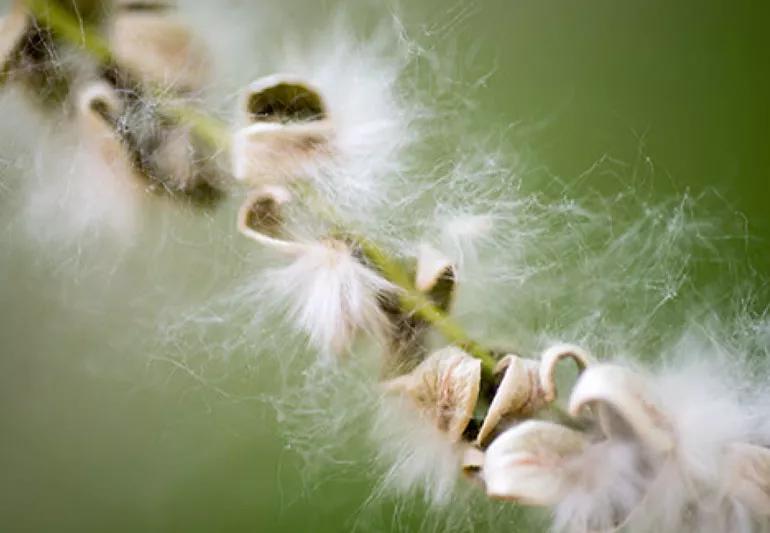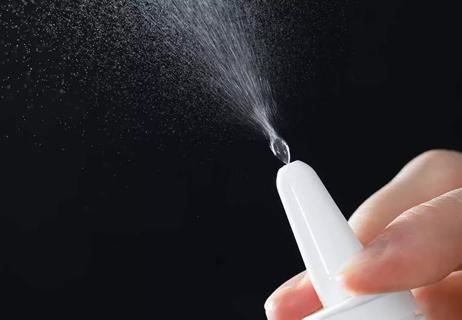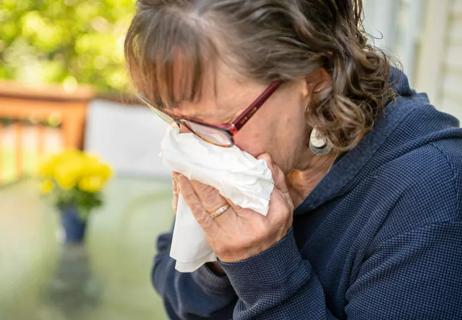Time of day, time of year and weather patterns can all make your allergies worse

“Am I getting sick, or are my allergies just really bad right now?” It’s a guessing game many of us play from time to time — a guessing game nobody likes playing and nobody ever wins.
Advertisement
Cleveland Clinic is a non-profit academic medical center. Advertising on our site helps support our mission. We do not endorse non-Cleveland Clinic products or services. Policy
While we typically know when allergy season starts and ends, Mother Nature enjoys throwing curveballs. We talked with allergist David Lang, MD, about why seasonal allergies are so much worse at some times than others — and what you can do to defend yourself against them.
Peak allergy season will hit at different times depending on where you live and the kinds of plants that grow there. Generally speaking, the order of operations looks something like this:
How long a season lasts — and its severity — may change based on weather patterns.
For example, let’s say your area is experiencing a colder, wetter spring than usual. That will push back tree pollen season, which means the tree and grass pollen seasons overlap. If you’re allergic to both tree and grass pollens, that’s bad news because you’ll experience an allergic double-whammy.
If allergy season is making you extra miserable this year, it’s important to stay indoors as much as possible. But what about indoor allergies? And how much of what’s floating around outside is making its way in? We’ve compiled some tips to help you fortify your home against invading allergens.
Advertisement
If you’re allergic to your pet, avoid sleeping with Fido. It can make your symptoms worse, and make you more reliant on medication.
“If you’re allergic to outdoor pollens, it’s important that you keep the windows in your car and home closed with the air conditioning on,” Dr. Lang states. “This can help cut down the indoor pollen counts by 90% or more.”
Sleeping with your windows closed is also key. That’s because sun triggers pollen release in many plants. 5 a.m. to 10 a.m. is when pollen release is at its peak.
Did you know that you can get air filters for both your home and your car that are certified asthma and allergy friendly® by the Asthma and Allergy Foundation of America? Now you know!
Once you’ve found allergy-friendly filters that work for your HVAC system, be sure to change them regularly. But keep in mind that not all HVAC systems are created equal. Some only need replacement filters every 90 days, while others are only good for 30.
And if you don’t have them already, consider investing in air purifiers and a vacuum with a HEPA filter.
Spring is a time of renewal, so it’s hardly surprising that so many of us perform a ritual refresh as the weather begins to warm up. Ideally, of course, spring cleaning should happen year-round — especially if indoor allergies impact your daily life.
Whether you spruce up your space every day or a few times a year, these golden rules will keep you from cleaning your way into an allergy attack:
While you’re cleaning, take a minute to check:
Have you ever heard the phrase “the best offense is a good defense”? It’s especially true of allergies.
“It’s important for patients to be taking medication every day, whether they think they need it or not,” Dr. Lang advises. “Usually, we recommend that people front-end the pollen season and begin taking medication early in the season or better yet before the season starts.”
If over-the-counter antihistamines and nasal steroids aren’t making a dent in your symptoms, it might be time to speak with a doctor about your treatment options.
If you feel like your allergies have been dialed up to 11, you’re probably right. When and how much pollen and mold spores get released into the air can change based on weather patterns.
Advertisement
Your best protection against seasonal sniffles is (1) consistently taking your allergy medication regardless of how you’re feeling and (2) allergy-proofing your home. You can’t eliminate seasonal allergies, but lifestyle changes can help reduce their impact.
Advertisement

Sign up for our Health Essentials emails for expert guidance on nutrition, fitness, sleep, skin care and more.
Learn more about our editorial process.
Advertisement

‘Rebound congestion’ happens when your body starts to rely on decongestant nasal spray

Find out how allergies work on your body

Pink eye tends to start in one eye before spreading to the other, while allergies usually affect both eyes at the same time

Most antihistamines, like Zyrtec, are OK, but avoid decongestants for at least the first trimester

Allergies, indigestion and the effects of gravity can all mess with your nose at night

Open the windows, keep a clean house and consider putting in preventive features like carbon monoxide detectors

Neti pots can be useful for sinus pressure relief and removing excess mucus

An allergist can help you make a plan that includes information about what to do in case of an allergic emergency

Even small moments of time outdoors can help reduce stress, boost mood and restore a sense of calm

A correct prescription helps your eyes see clearly — but as natural changes occur, you may need stronger or different eyeglasses

Both are medical emergencies, but they are very distinct events with different causes